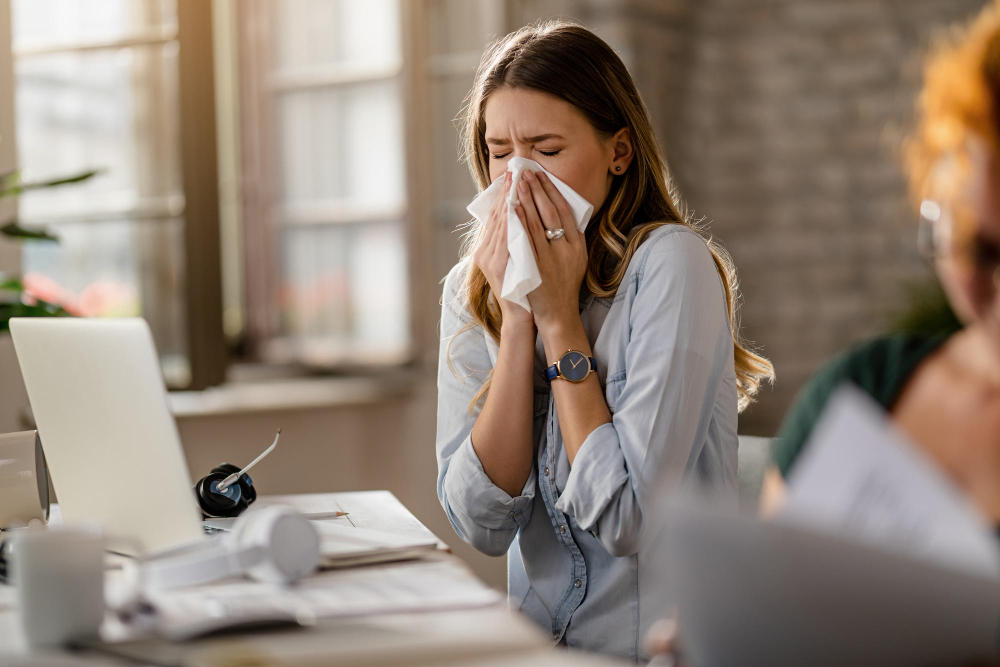What Are Allergies?
During menopause, some women may notice an increase in allergies or heightened sensitivity to allergens. Allergies are a result of the immune system’s overactive response to substances that are usually harmless, such as pollen, pet dander, dust mites, or certain foods. Hormonal changes during menopause can impact the immune system’s function, leading to alterations in the body’s allergic response.

What causes Allergies?
Estrogen, a hormone that fluctuates significantly during menopause, plays a role in regulating immune responses. As estrogen levels decline, the immune system may become more sensitive to certain allergens, resulting in increased allergic reactions. This heightened immune response can manifest as symptoms like sneezing, runny or stuffy nose, itchy or watery eyes, skin rashes, or gastrointestinal discomfort.
Moreover, as women age, their immune system may undergo changes, leading to alterations in immune cell function and inflammatory responses. These changes can further contribute to the development of new allergies or increased sensitivity to existing allergens.
Additionally, the stress associated with menopausal symptoms can impact the immune system, potentially exacerbating allergy symptoms. Stress can affect the release of immune-related chemicals, triggering or worsening allergic reactions.


How to get rid of Allergies
Keep track of your symptoms and potential allergens to identify specific triggers. Understanding which allergens provoke your reactions can help you avoid or minimize exposure.
If you identify specific allergens as triggers, take measures to limit your exposure to them. For example, if pollen is a trigger, try to stay indoors during peak pollen times and keep windows closed to reduce exposure.
Regularly clean your living spaces to minimize exposure to dust mites, pet dander, and other allergens.
Consider using air purifiers in your home to help remove airborne allergens and improve indoor air quality.
Nasal irrigation with saline solutions can help rinse out allergens and reduce nasal symptoms.
Practice stress-reducing techniques such as meditation, yoga, or deep breathing exercises to manage stress and potentially alleviate allergy symptoms.
BHRT can help balance hormone levels and may have a positive impact on immune function, potentially reducing allergic reactions.
Want help with your Allergies?
Click here to learn more about your options with the Healthy Hormone Club

